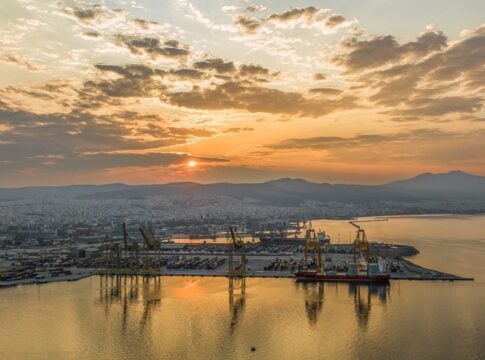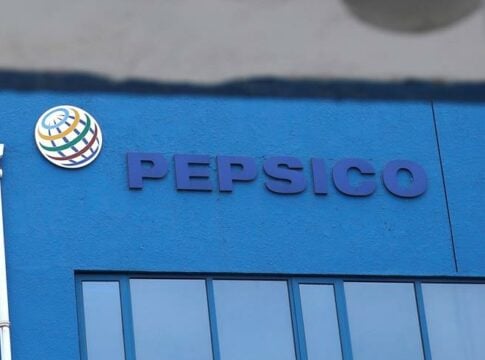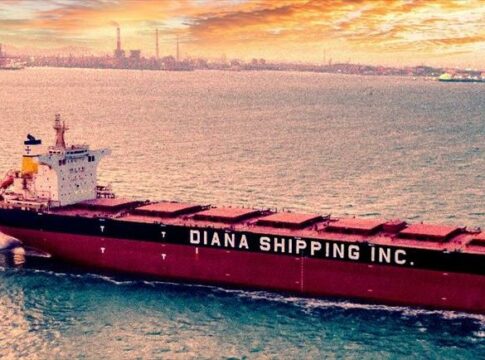The central role of Greek-owned ocean-going shipping in the global and domestic economy is highlighted by McKinsey & Company in a recent study, carried out in collaboration with the Union of Greek Shipowners.
The study highlights the sector’s key role in international trade, while also analyzing the challenges and opportunities that shape its future.
Ocean-going shipping is an important pillar of the Greek economy, like the automotive industry for Germany or the watchmaking industry for Switzerland. Greece, which represents less than 0.3% of global GDP, despite the small size of its economy, controls approximately 20% of global ocean-going shipping, demonstrating its dominant role in the international shipping market. This disproportionate influence highlights the strategic importance of shipping for Greece, with the sector affecting one in 15 jobs in the domestic private sector.
Greek Shipping in Numbers
Fleet: With more than 5,000 ships in the water, which are under the control of Greek shipowners, Greece holds a leading role in tankers transporting liquid and liquefied gas cargoes, while it is in second place worldwide in dry bulk cargoes.
Shipping Management Center: Athens has established itself as a global ship management center, hosting over 750 management companies, of which over 100 manage more than 10 ships. In addition to the management companies, a wide cluster of related high-level services has also been created.
Jobs: Greek shipping, directly supporting 60,000 jobs in Greece and employing more than 200,000 seafarers serving in global waters, constitutes a multi-level economic pillar. However, its influence goes beyond the industry, as it supports a wide network of 90,000 additional jobs in various sectors of the Greek economy, while strengthening entrepreneurship and philanthropy.
Energy security: Greek shipping plays a critical role in Europe’s energy security, as Greek-owned ships transport a large part of Europe’s liquefied natural gas and crude oil imports. For example, 30% of the LNG volume imported into Europe via sea routes in 2023 was carried by Greek-owned ships, while 40% of Europe’s crude oil imports by sea were carried by Greek tankers.
Global footprint: Over the past decade, Greek shipowners have invested more than 100 billion dollars in the construction of new ships in shipyards around the world.
Global economic power
The success of Greek ocean-going shipping is due to a number of factors, such as the long tradition, technical expertise, business foresight of Greek shipowners, as well as the strategic geographical location of Greece.
These elements have allowed Greek shipowners to make decisions that respond to the prevailing market conditions and ensure uninterrupted maritime transport, even in demanding conditions, such as the period of the 2008 financial crisis, the period of Covid-19, as well as the current period of intense geopolitical turmoil in our wider region.
The revenues of Greek ocean-going shipping come almost entirely from its international activity, with an average estimated turnover ranging between 40-50 billion dollars per year, depending on the prevailing market conditions. Cumulatively, it is the largest and most extroverted economic sector in Greece, leaving behind sectors of activity such as transport, real estate and retail, whose revenues come mainly from the domestic market.
At the same time, with a strong presence in international financial markets, counting over 20 listed companies on foreign stock exchanges and a total capitalization exceeding 9 billion, Greek shipping demonstrates its potential on the global stage.
Equally important is its contribution to the domestic economy, with the economic footprint of the sector valued at 14 billion dollars, while it contributes approximately 150,000 highly skilled and highly paid jobs in the broader maritime ecosystem as well as in other important sectors of the domestic economy.
In fact, it is estimated that Greek shipowners reinvest approximately 1.4 billion annually in other sectors of the Greek economy, such as real estate, energy, tourism or sports, while also offering significant funds estimated to exceed 400 million annually in social solidarity actions.















